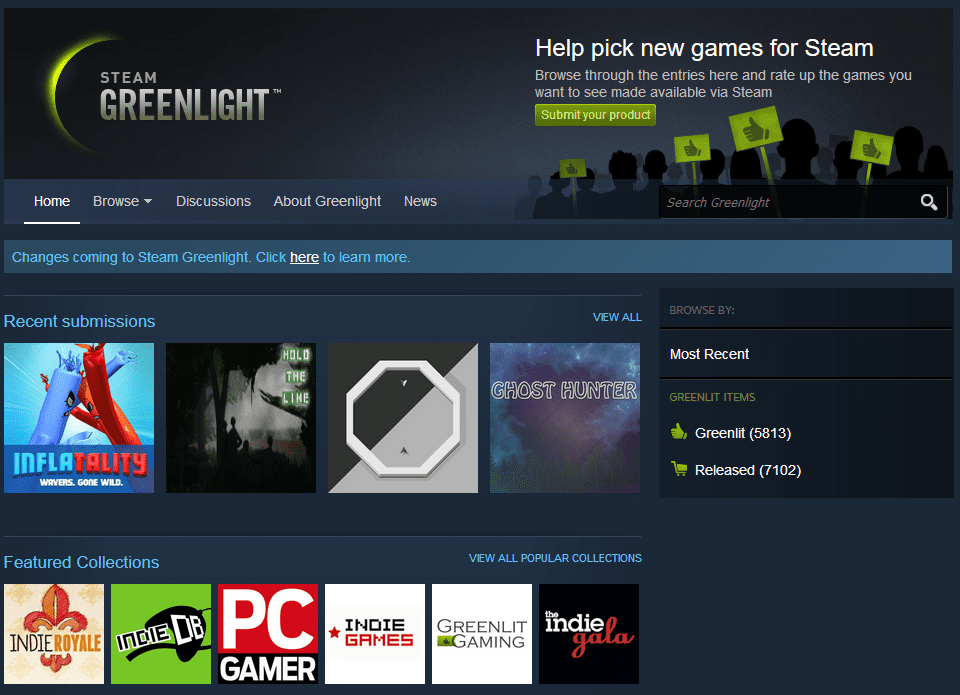Some time back, Valve announce that Steam Greenlight was to be replaced with a far more… direct means of bringing games to Steam. Among other things, the fee for this proposed service would be flat and upfront for all developers. The point, of course, being to avoid some of the more underhanded tactics used by less scrupulous developers to get their games greenlit.
Greenlight was implemented in 2012 with a lofty goal; allowing smaller developers their opportunity to take a swing at success, and streamline to process of getting games on to the store. Hypothetically, it would separate the wheat from the chaff, making it easier for developers working in earnest to get their games on the store.
In practice, good titles were often lost in a deluge of crap; the $100 dollar fee didn’t deter people trying to scam a quick buck with sub-par products, and finding interesting or promising projects was difficult. Even changes made specifically to combat the problem (giving smaller developers a free platform to generate interest, for example) did little to stem the tide.
And thus, Greenlight’s replacement; Steam Direct. Valve had bandied about the fee, initially stating it would be somewhere between Greenlight’s $100 and $5000. They have, however, settled on the former; Steam direct will cost developer’s $100 to get their game publishes on the Steam Store. What’s more, once your game has made $1000 in sales, the initial $100 will be refunded. No longer will smaller developers need to deal with a lengthy pre-approval process at the hands of Steam users, and there is incentive to make a game good enough to recoup that initial cost.
Related, Valve aims to make their store experience much easier for the end user. Specifically, through the Curator program. They’ve received plenty of feedback from both users and curators; in turn they’re updating the Curator system.
Curators will now have the ability to generate content beyond a small blurb; lists and videos will be an option for reaching their followers. Curators will also have easier access to developers; important for that pre-access period.
Will the refund be enough to deter the pushers of the execrable? Probably not; but that’s not the point. The point is to give developers who are actually trying to bring unique, entertaining experiences to market a more level playing field. And that was Greenlight’s purpose in the first place.

